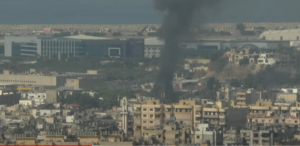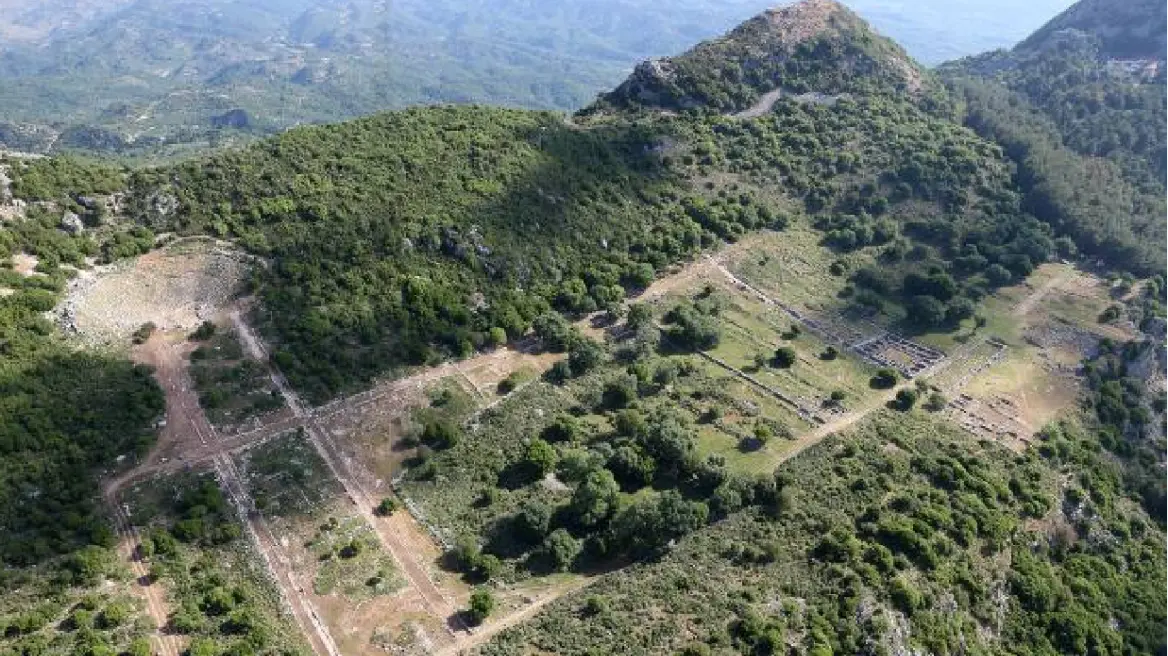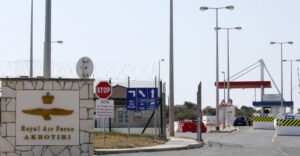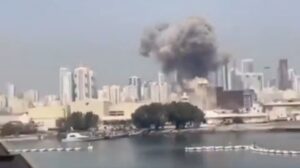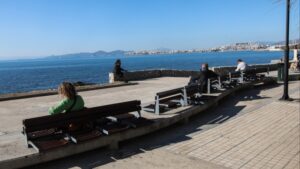Israeli airstrikes this morning targeted southern suburbs of Beru, eyewitnesses told Reuters, hours after the U.S. warned that it opposes the scope of Israel’s attacks on the Lebanese capital, amid rising death tolls and concerns about further escalation of the conflict in the region involving Iran.
Eyewitnesses told Reuters they saw a cloud of smoke. A short time earlier, the Israeli army had asked residents of the Dahirah neighborhood to evacuate and then explained that it had conducted a strike against an underground weapons depot of Hezbollah.
“Before the strike, many measures were taken to avoid the risk of harming civilians, including warnings to residents of the area,” the Israeli Defense Forces (IDF) noted.
The Israeli military has issued removal orders covering more than a quarter of Lebanon, according to the UN High Commissioner for Refugees (UNHCR), two weeks after it began ground operations in the south of the country with the aim, it says, of pushing back Hezbollah.
Lebanon’s caretaker Prime Minister Najib Mikati said yesterday, Tuesday, that contacts with US officials had produced “some kind of guarantees” that Israel would limit its strikes against Beirut and its southern suburbs.
The last time Beirut was targeted by Israeli strikes was on October 10, when 22 people were killed in airstrikes near the city centre.
Sources in the Lebanese security services had indicated that the target of that strike was Wafiq Safa, a Hezbollah official, but he survived.
Some Western countries are pushing for a ceasefire between Israel and Hezbollah, though the US has said it still supports Israel and announced the deployment of a new missile defense system.
Yesterday, Matthew Miller, a State Department spokesman, noted that the US had expressed concern to the government of Israeli Prime Minister Benjamin Netanyahu over recent strikes against Lebanon.
“In terms of the scope and nature of the bombing campaign that we have seen in Beirut in recent weeks, we have made clear to the government of Israel that we are concerned and we are opposed,” he told reporters, adopting the toughest tone Washington has taken so far.
For his part, Netanyahu told French President Emanuel Macron yesterday during a phone call that he opposed a unilateral cease-fire because “it would not change the security situation.”
He also added that he was “surprised” by Macron’s plan to host a conference on Lebanon, and responded to a comment by the French president by saying that the creation of Israel was the result of the 1948 “war of independence” and not a UN resolution
“A reminder to the president of France: it was not the UN resolution that established the State of Israel, but rather the victory achieved in the war of independence, with the blood of heroic fighters, many of whom were Holocaust survivors – notably the Vichy regime in France,” Netanyahu’s office said in a statement.
Peace and Truce
With diplomatic efforts stalled, the clashes continue. The Israeli army said yesterday that it had captured three members of Hezbollah’s elite Radwan unit who have been taken to Israel for questioning.
In a speech yesterday, the second-in-command of the Shiite Lebanese movement, Naim Qassem, said that “the solution” to ending the war in Lebanon is “a ceasefire.”
He also assured that Hezbollah “will not be defeated” by the Israeli army and warned that it would cause “pain” to Israel.
“Just as the Israeli enemy is bombing all of Lebanon, we have the right, standing in a defensive position, to attack the Israeli enemy everywhere, in the center, in the north and in the south,” Qassem said.
Two drones were spotted entering Israel from Lebanon early this morning, shortly after warning sirens sounded in the Upper Galilee, the Israeli army said, adding that there were no casualties.
Hezbollah noted that it launched a “squall of missiles” against the town of Safed last night. This is the third time this northern Israeli town has been targeted by the Shiite movement.
At the same time, it added that it also fired rockets against Israeli artillery positions in Dalton and Dishon.
The Israeli army, for its part, said Hezbollah fired some 50 rockets at northern Israel, with no casualties.
Israeli strikes against Lebanon have killed at least 2,350 people over the past year, while 11,000 others have been wounded, according to the country’s health ministry. In addition more than 1.2 million people have been displaced.
Ask me anything
Explore related questions
